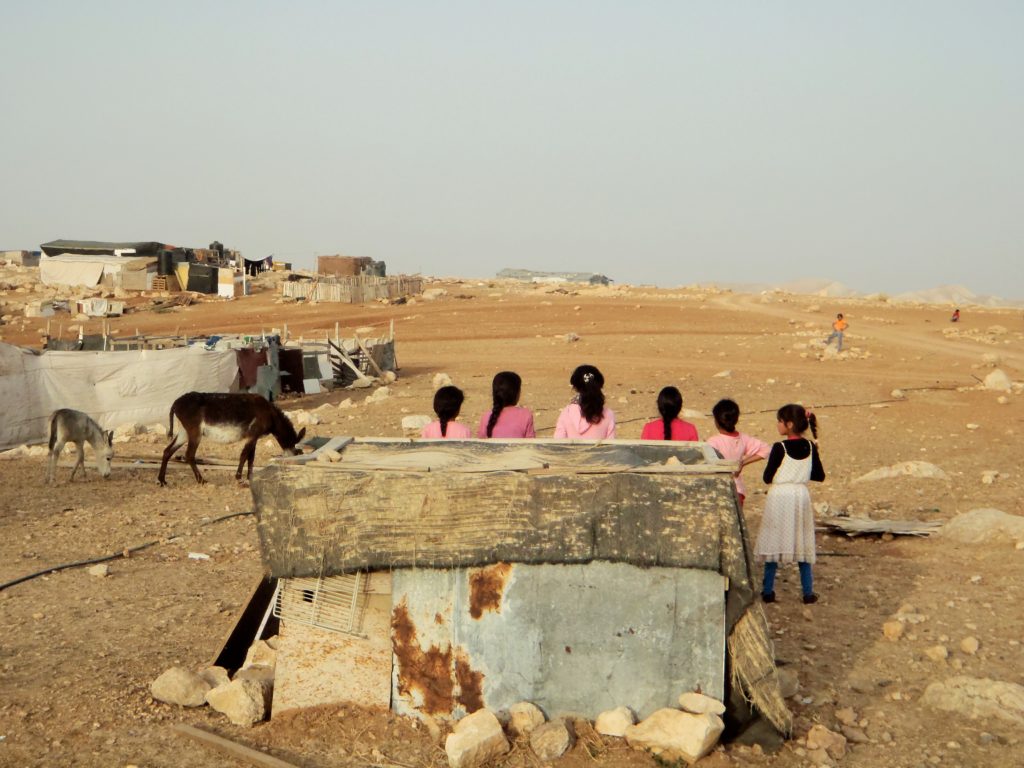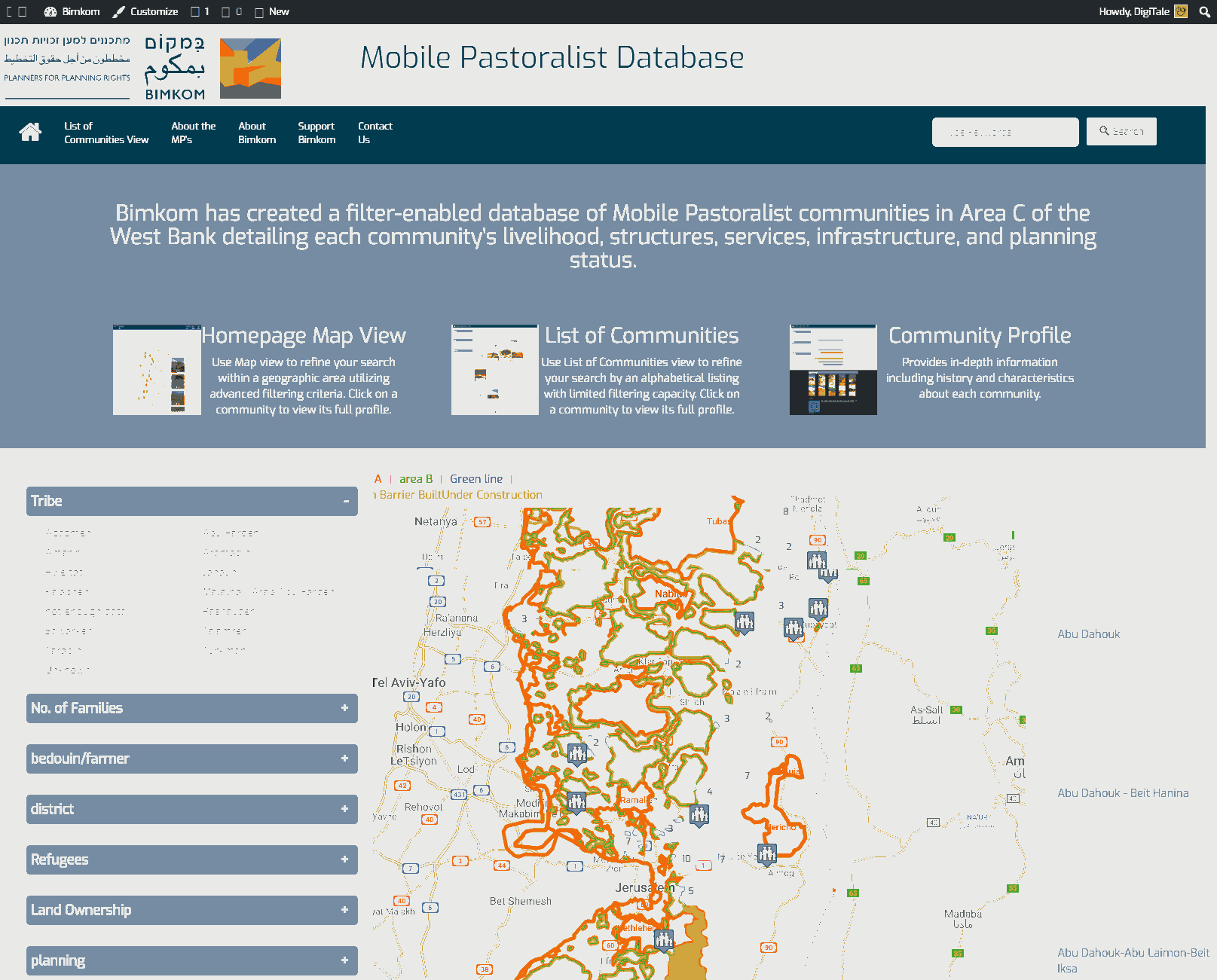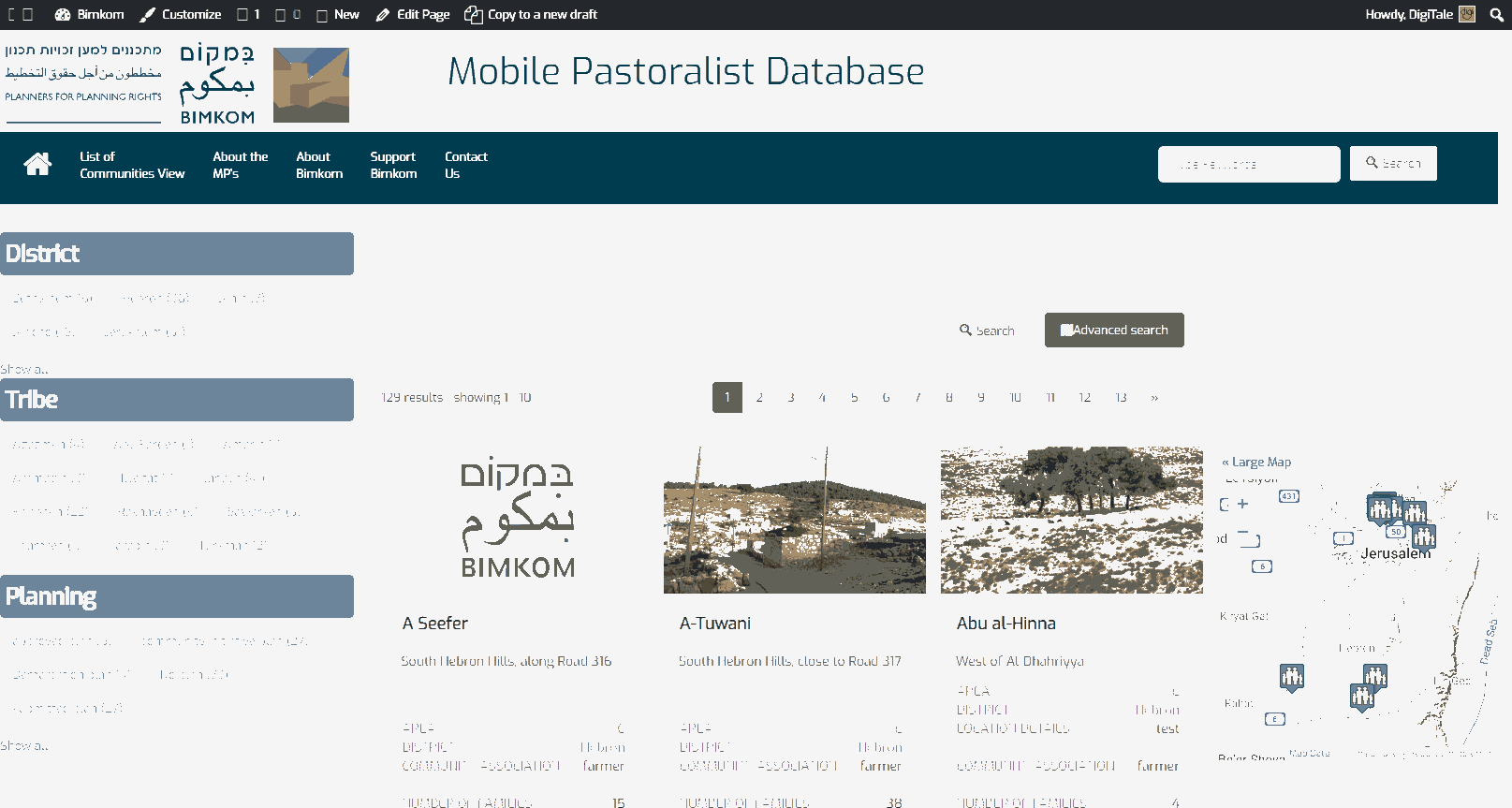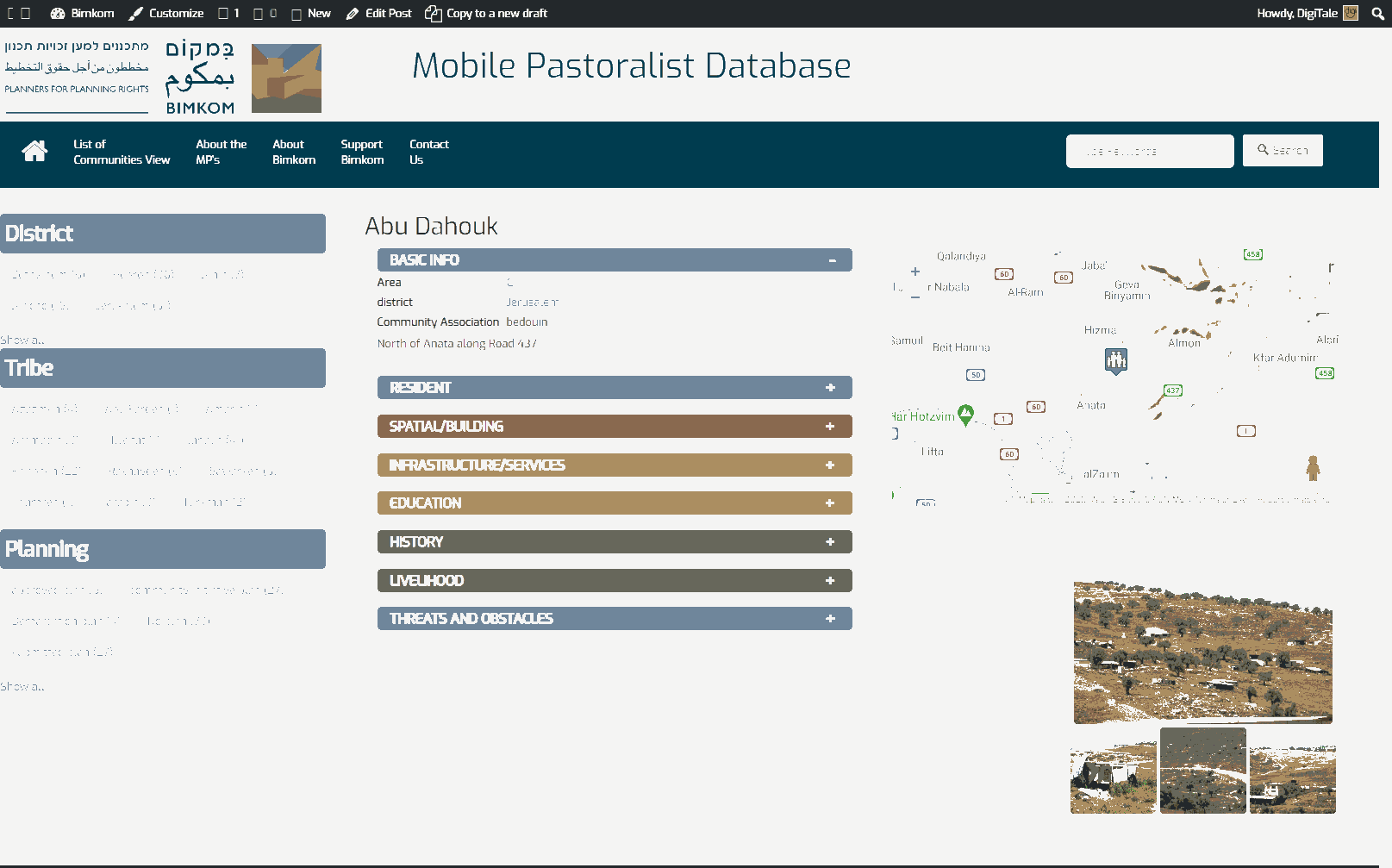Mobile Pastoralist (MP) Database Site
About the MPs?
The centuries-old pastoralist tradition has proved to be one of the most resilient of rural livelihoods throughout the history of the Middle East. Sustainable through its mobility, herding livestock historically makes use of rangeland in semi-arid areas that are otherwise difficult to exploit, being ill suited to agricultural or urban use. A robust pastoral sector contributes to social, economic and commercial diversity in the majority of Middle Eastern countries with milk and meat products typically being supplied to sedentary populations by the Mobile Pastoralists (MP).
In the West Bank today the pastoral economy is being crippled by a number of policy directives which restrict mobility. 
For the pastoral economy to thrive, specific conditions are required, the foremost of which is mobility whereby MPs require free access to rangeland, natural water resources and commercial centers. Restricted mobility triggers a dependence on intensive feeding mechanisms, which result in the decline of the pastoralist economy. In the case of Area C, access to most of traditional rangeland is today prohibited to Palestinians.
To ensure safety and wellbeing during seasonal mobility, MPs erect temporary structures to serve as human and livestock shelters close to areas rich in natural resources. In Area C, such shelters are frequently the target of demolitions due to their lack of building permits under the zoning and planning policy. A high percentage of demolitions and forced evictions occur in the MP communities, making them one of the most vulnerable communities in Area C. While new planning initiatives target other communities in the West Bank, no comprehensive solution exists to safeguard the 35,000 residents in 180 mobile pastoralist communities.
The MP Database
Working closely with the MP communities in the West Bank, Bimkom has developed an in-depth survey of their situation and needs in terms of living conditions, livelihood and services, including access to infrastructure, shelter, water and husbandry. These findings are documented in this database and are openly available to local and international stakeholders.
This database seeks to advance a change in Israeli land and planning policies in Area C in order to accommodate the unique livelihoods of the Palestinian MP population and ensure respect for their human, social and cultural rights.
To read more about our work with MP communities please refer to our recent reports:
In Area C of the West Bank, spatial planning is controlled by the Civil Administration (CA). Until now, the CA has at best ignored the Bedouin communities, and at worst has adopted planning practices such as forced evictions or strictly limited zoning of areas for construction. In either case, most of the communities have not been recognized at all: they are not connected to essential infrastructure such as water and electricity, they are denied education and health services, and worst of all, the sword of demolition and expulsion hangs over them constantly.
The effect of forced transfer on Bedouin Women
Many Bedouin communities in Area C of the West Bank today are threatened with eviction and forced displacement. This position paper discusses the effects of the forced transfer on Bedouin women and girls who have been removed by Israel from their natural habitat, and on whom a new spatial and social reality has been imposed in recent decades.
Herding communities in Area C are communities whose economic survival, and to a large extent their social and cultural survival, depend on access to water and grazing lands, the basic natural resources needed for their existence. Since these natural resources are limited and not always stable, the mobility of the flocks in order to find water and pasture is a basic condition of their way of life, and requires dynamic logistical arrangements.



